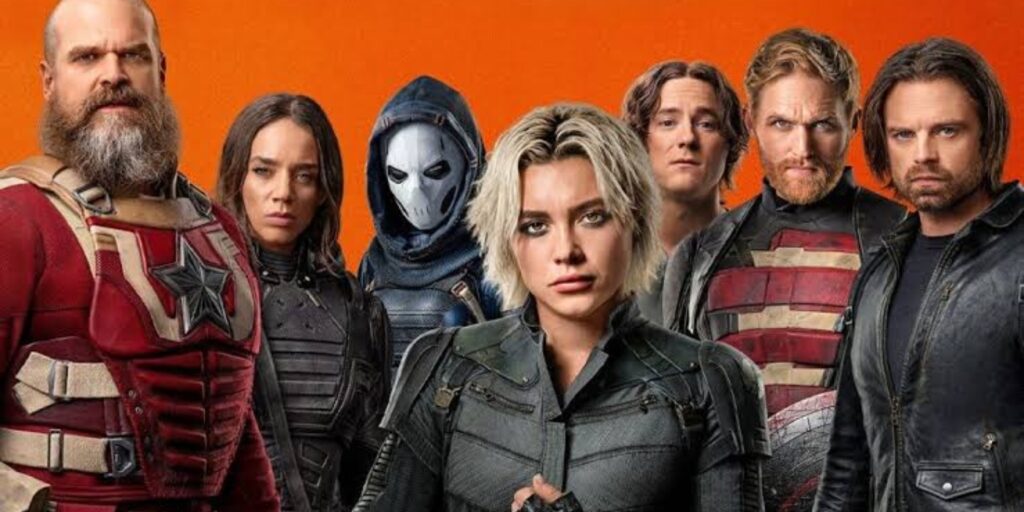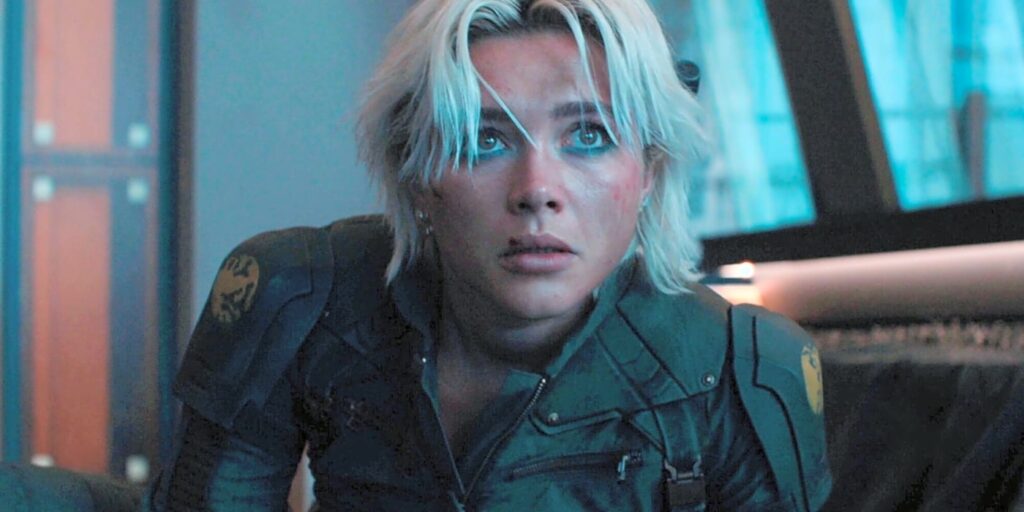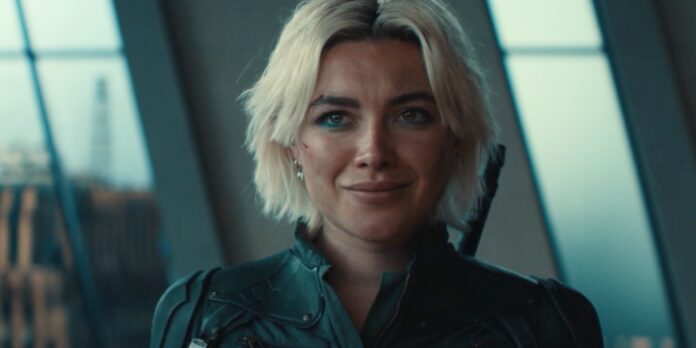When Florence Pugh’s Yelena Belova first arrived on-screen in ‘Black Widow’, she wasn’t meant to be a franchise savior. She was meant to be the sister who gave Natasha Romanoff’s long-awaited solo movie its soul.
However, four years later, as the Marvel Cinematic Universe faces fatigue, uncertainty, and a desperate need for fresh emotional anchors, Yelena has evolved into something bigger: the most human hero Marvel has left.
Yelena Belova Is The Human Core MCU Desperately Needs

In a cinematic universe overflowing with multiversal chaos, cosmic entities, and timelines tearing at the seams, something is refreshing about a character like Yelena. She’s grounded, and she feels real. Her debut in ‘Black Widow’ instantly set her apart. Even as she fought alongside Natasha, it wasn’t her physical prowess that stood out; it was her vulnerability. That dinner table scene, where she breaks down, insisting their fake family was real to her, remains one of the MCU’s most emotionally raw moments.
Related: Real Reason Why Marvel’s Ultimate Universe Is Ending And It’s Actually A Good Thing
And Marvel noticed. When Yelena reappeared in ‘Hawkeye‘, she didn’t come back as a shadowy assassin; she came back as a grieving sister trying to make sense of a death that defined her. Her rooftop scene with Kate Bishop wasn’t about vengeance. It was about pain, humor, and connection. This is what makes Yelena one of the most alive characters in the MCU.
The MCU has long needed more of that. After ‘Avengers: Endgame’, many of its new heroes, from Shang-Chi to Captain Marvel to even Doctor Strange, struggled to connect on a personal level with audiences. Their stories were grand, but their humanity felt distant. Yelena, on the other hand, is more relatable and real.
Yelena Doesn’t Need Superpowers To Lead

Marvel’s latest team-up film, ‘Thunderbolts’, might have seemed like an ensemble story on paper. However, in execution, it was Yelena’s movie. She was the one who drove the team forward, the one who brought a sense of moral compass and empathy to a group of misfits and broken soldiers. She was the kind of leader who didn’t come from strength, but from compassion. Her leadership isn’t the loud, commanding type we saw from Steve Rogers or Tony Stark.
In case you missed it: Marvel’s Most Relatable Spider-Man Yet Is Ending Far Too Early
It’s quiet, earned, and human. She doesn’t demand loyalty; she inspires it. She’s not trying to be the perfect hero; she’s trying to survive and help others do the same. That’s precisely what makes her such an effective successor to the original Avengers. In a world where the old guard has either died, retired, or disappeared into the multiverse, the next era of Marvel doesn’t need another god-like savior. It needs a heart. And Florence Pugh’s Yelena provides that effortlessly.
What’s remarkable is that Yelena’s leadership already mirrors what made Tony Stark and Steve Rogers so compelling. Steve was a man out of time who never stopped believing in people. Tony was a man haunted by guilt who never stopped trying to make things right. Yelena is a woman still learning how to live with loss, and she’s still choosing to fight for others. That’s heroism in its purest form.





